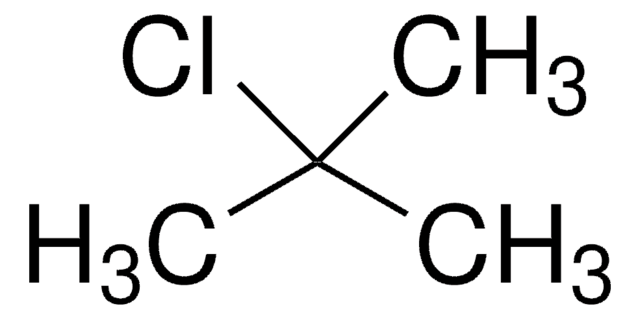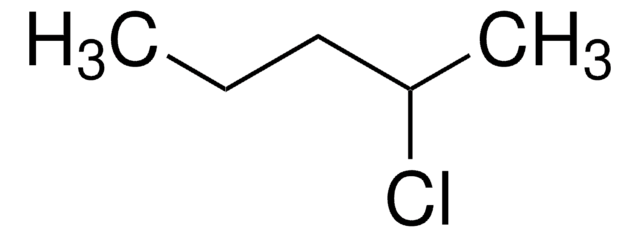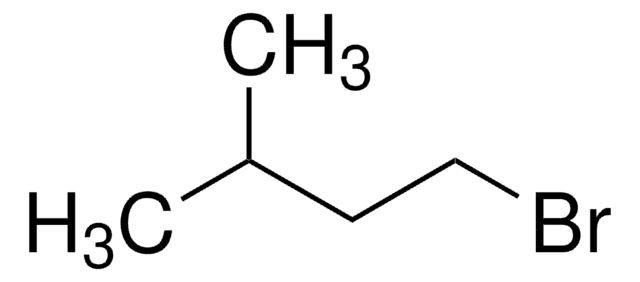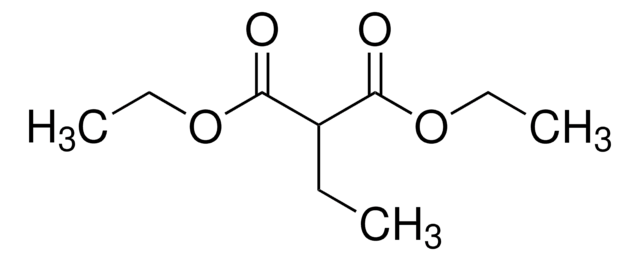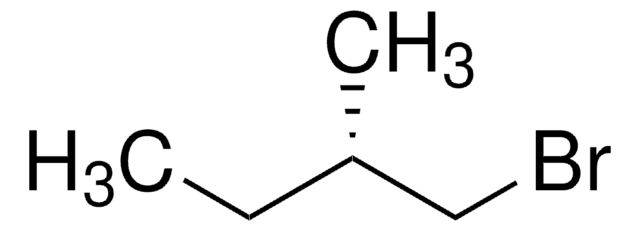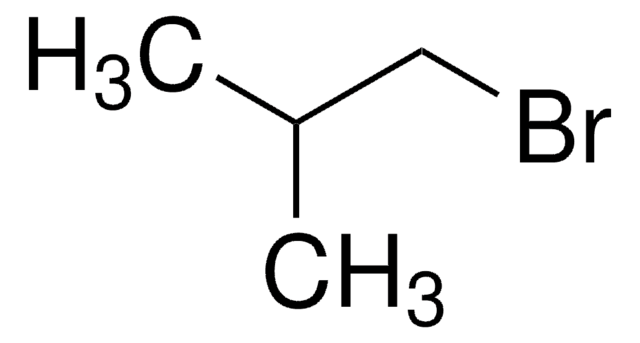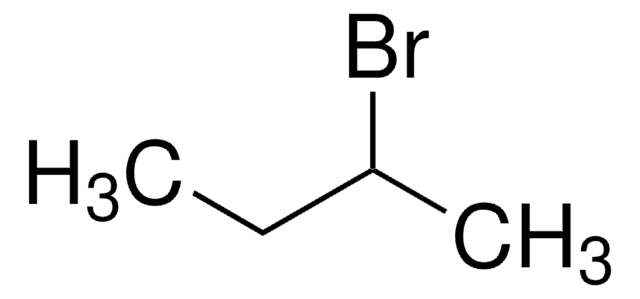B75204
2-Bromopentane
95%
Synonym(s):
(±)-2-Bromopentane, (±)-2-Pentyl bromide
Sign Into View Organizational & Contract Pricing
All Photos(1)
About This Item
Linear Formula:
CH3CH2CH2CHBrCH3
CAS Number:
Molecular Weight:
151.04
Beilstein:
1718829
EC Number:
MDL number:
UNSPSC Code:
12352100
PubChem Substance ID:
NACRES:
NA.22
Recommended Products
Quality Level
Assay
95%
form
liquid
refractive index
n20/D 1.441 (lit.)
bp
116-117 °C (lit.)
density
1.223 g/mL at 25 °C (lit.)
SMILES string
CCCC(C)Br
InChI
1S/C5H11Br/c1-3-4-5(2)6/h5H,3-4H2,1-2H3
InChI key
LGAJYTCRJPCZRJ-UHFFFAOYSA-N
Looking for similar products? Visit Product Comparison Guide
Other Notes
remainder 3-Bromopentane
Signal Word
Danger
Hazard Statements
Precautionary Statements
Hazard Classifications
Aquatic Chronic 2 - Flam. Liq. 2 - Skin Irrit. 2
Storage Class Code
3 - Flammable liquids
WGK
WGK 3
Flash Point(F)
68.0 °F - closed cup
Flash Point(C)
20 °C - closed cup
Personal Protective Equipment
dust mask type N95 (US), Eyeshields, Gloves
Choose from one of the most recent versions:
Already Own This Product?
Find documentation for the products that you have recently purchased in the Document Library.
Customers Also Viewed
S Sekiguchi et al.
Industrial health, 36(3), 297-299 (1998-08-14)
The influence of 2-bromopropane, an alternative to freon, on ovulation was examined using superovulation induced by pregnant mare's serum gonadotropin and human chorionic gonadotropin (PMSG-hCG) treatment. Three groups of mice were injected intraperitoneally 8 times with 2-bromopropane (2-BP) at 500
Analysis of teratogenic effects of maternal treatment with 2-bromopropane in mice.
Hitoshi Ishikawa et al.
Journal of occupational health, 45(1), 63-65 (2003-11-08)
Klaudia Chmelova et al.
Applied and environmental microbiology, 86(17) (2020-06-21)
Haloalkane dehalogenases can cleave a carbon-halogen bond in a broad range of halogenated aliphatic compounds. However, a highly conserved catalytic pentad composed of a nucleophile, a catalytic base, a catalytic acid, and two halide-stabilizing residues is required for their catalytic
[Establishment of the maximum permissible concentration of 2-brompentane in the air of a work area].
M B Lis et al.
Gigiena truda i professional'nye zabolevaniia, (5)(5), 51-52 (1981-05-01)
Our team of scientists has experience in all areas of research including Life Science, Material Science, Chemical Synthesis, Chromatography, Analytical and many others.
Contact Technical Service


